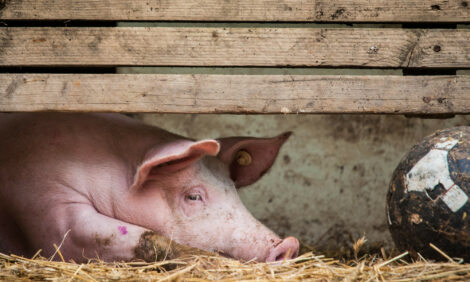



EU Countries Still Not Complying with Sow Stall Ban after Two Years
EU - No action has been taken against European countries that are not complying with the EU-wide ban on sow stalls – a year after warning letters had been sent out and two years after it became law.Last year, the European Commission wrote final legal warning letters to four countries that were not complying with the regulations – Belgium, Cyprus, Greece and France.
Initial warning letters had been sent to them in February 2013.
At the same time as the final warning letters were sent out, initial warning letters were sent to Slovenia and Finland.
This week the European Commission told ThePigSite that no further action has been taken since then.
“We can inform you that no further official steps have been taken against any of the non-compliant Member States,” a European spokesman for Health and Food Safety told ThePigSite.
“All of them have communicated information to the Commission.
“The Commission services are closely monitoring the progress made by them and will take the steps necessary to achieve full compliance across the EU.
“However, further details of the relevant procedural requirements are related to the pending infringement investigations and their disclosure would undermine the protection of the purpose of those investigations as well as the necessary trust-based cooperation between the Member State and the Commission.”
The sow stall Directive 2008/120/EC lays down minimum standards for the protection of pigs.
The ban of individual sow stalls was decided in 2001 with the adoption of a specific Directive on the welfare of pigs.
A transitional period of 12 years was allowed to adapt to the new systems.
From 1 January 2013, sows were expected to be kept in groups rather than in individual stalls “during approximately the first two months and a half of their pregnancy”.
The ban on sow stalls was introduced in response to demand, in particular from EU citizens and consumers, to improve food quality and animal health.
Dr Zoe Davies from the National Pig Association in the UK, where the sow stall ban was put in place several years before the deadline in 2013 said that she was “not surprised but not happy” over a lack of action by the European Commission to ensure the ban is in place and that action is taken against non-compliant countries.
She said that infringement action can take several years and she indicated that she was not confident that tough action would be taken against those countries that are flouting the law.
She said that in the UK, the pig industry called on the retailers and processors directly to ensure that pig meat was sourced from production systems that did not use sow stalls.






